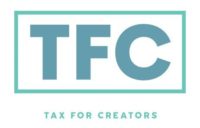The era of YouTube has ushered in a new breed of professionals: content creators. As these creators navigate the platform’s opportunities, understanding Canadian taxation principles becomes paramount. This guide aims to shed light on declaring YouTube income for Canadian creators and ensuring compliance with the CRA.
- Recognizing YouTube Revenue Streams
- Differentiate Between Gross and Net Income
- Understand the Tax Implications
- Deductions: Minimize Your Taxable Income
- GST/HST Implications
- Seek Assistance from YouTube's Analytics
- International Considerations
- Stay Updated with YouTube's Tax Forms
- When in Doubt, Consult a Professional
Recognizing YouTube Revenue Streams
Before diving into taxation, it’s vital to comprehend the various ways a Canadian YouTube creator might earn:
- Ad Revenue: AdSense, derived from ads shown in your videos, whether they’re display, overlay, skippable, or non-skippable ads.
- Channel Memberships: Monthly payments made by subscribers for exclusive badges, emojis, or content.
- Super Chat & Super Stickers: Payments made by viewers during live chat sessions.
- YouTube Premium Revenue: Earned from subscribers watching your content without ads.
Remember, all these income streams, combined, represent your total earnings before YouTube takes its cut.
Differentiate Between Gross and Net Income
Gross income encompasses all your earnings, while net income is what you retain after YouTube’s deductions. For tax purposes, you’ll primarily focus on the net income, but it’s essential to maintain records of both.
Understand the Tax Implications
In Canada, money earned from YouTube is considered business income. Hence, you’re required to report this as part of your annual income tax filing.
- Form T2125: Part of the T1 income tax package, this form allows you to report your business or professional activities.
- Tax Brackets: Ensure you’re familiar with federal and provincial tax brackets. As your YouTube income increases, your tax obligations might shift.
Deductions: Minimize Your Taxable Income
The good news? Business-related expenses can be deducted:
- Business use of home: If you film inside your home, have a dedicated studio space, or use your home as a workspace to edit and upload your videos, you can claim a portion of all the expenses that contribute to maintaining your house – including property taxes, heat, electricity, insurance, maintenance, and mortgage interest.
- Office expenses: Expenses incurred in the course of maintaining the business-side of your YouTube channel are deductible – including pens, printer paper, toner, and business bank account fees.
- Internet: The costs you pay to your internet service provider (ISP) are deductible at the percentage used for your YouTube business (e.g., 50%).
- Cell phone: Your cell phone bill is also deductible at the percentage used for your YouTube business.
- Professional fees: Any fees associated with experts you’ve hired in the course of your YouTube business, either for consulting to help you get started or for a CPA you’ve hired to help with your taxes, are deductible.
- Vehicle & mileage: Costs associated with travel via automobile for business purposes are deductible to an extent.
- Travel: Other travel costs (hotel room, airfare, Uber, car rental) associated with YouTube conferences or other destinations directly relevant to your YouTube business may be deductible.
- Data storage & subscriptions: Purchases of external hard drives or cloud storage subscriptions are deductible when used for the purpose of storing video footage; additionally, any ongoing subscriptions relevant to your YouTube channel, such as royalty-free music licensing services, are deductible.
- Advertising: Costs associated with advertising your YouTube channel are deductible, other acceptable costs under this category may include the cost of contests and giveaway prizes.
- Software: The purchase of professional video editing software used for YouTube may be completely deductible (may be a capital asset depreciable under CCA).
Always maintain receipts and detailed records to validate these deductions.
GST/HST Implications
If your revenue surpasses $30,000 over four consecutive quarters, you must register for GST/HST. This implies you’ll need to charge GST/HST to Canadian advertisers and remit this to the CRA. You might also qualify for Input Tax Credits, allowing for GST/HST reimbursement on business-related purchases.
Seek Assistance from YouTube’s Analytics
Your YouTube Analytics dashboard is a treasure trove. It provides a detailed breakdown of your earnings, making it simpler to track and declare.
International Considerations
Do you collaborate with brands or advertisers outside Canada? Be aware of any tax treaties between Canada and that country to avoid double taxation.
Stay Updated with YouTube’s Tax Forms
Periodically, YouTube might request you to submit tax information through AdSense (W8BEN form). This step ensures they withhold the correct amount of tax from your U.S. earnings, as mandated by U.S. law. Incorrectly completing this form can result in withholding tax being taken off your earnings and possible double taxation.
When in Doubt, Consult a Professional
Canadian tax law is complex. Enlisting a tax tax accountant’s help, especially one familiar with digital content creation, can be invaluable. They’ll offer tailored advice, ensuring you benefit from all available deductions and remain compliant. If you are in need of an accountant for your YouTube earnings, reach out to our Canadian CPA firm for accounting and taxation advisory.



